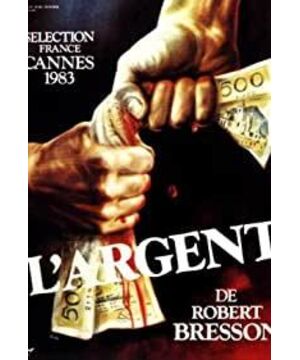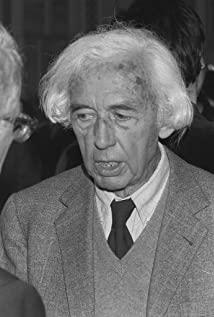This is a Bressonian work at the peak of image and narrative. Non-professional actors, incomplete composition, voice-over, oil painting tones, restrained images, omitted information, difficult camera language, partial close-up obsession, desperate interpretation, all Bresson elements come together, so this is also destined to be polarized Serious movie.
The rich second-generation Nobel went to a photographic equipment store to buy a photo frame with fake money because his father was unwilling to give more pocket money. The owner of the photographic equipment store discovered the fake money, and he immediately paid the fake money as wages to Ivan, a worker who worked for him. When Ivan was unknowingly checking out at a restaurant, the waiter discovered fake money, and the police arrested Ivan. Ivan sued the owner of the photographic equipment in court to prove his innocence. As a result, the owner of the equipment store used power and money to force his employee Lucien to give perjury, saying in the court that he had never met Ivan. In this way, Ivan lost the case, and the court let him go when he saw that Ivan was a first offender. Ivan, who has a wife and children, lost his job and no source of income. So he and his friends went to rob a bank, and were caught by the police again and jailed for three years. In prison, he learned that his son died of illness and his wife left him, and Ivan lost all meaning in life. On the other hand, Lucien blamed himself for his perjury. He stole the property of the owner of the equipment store in retaliation. After losing his job, he stole the property from the ATM on the roadside and was eventually put in prison. Became Ivan's cellmate. Ivan wanted to kill Lucien who had perjured and framed himself as the last meaning of life. However, Lucien, who tried to escape from prison, was caught and put in a separate cell, and Ivan once again lost the meaning of life. After being released from prison, Ivan, who had nothing, brutally killed the couple in the hostel and stole the money. Then an old woman saw that Ivan was desperate and kindly took him home. In the end, Ivan madly hacked to death the old woman's family with an axe, while he asked where the money was, and he hacked at the woman who kindly took him in. This crazy act is full of tension and bloodless under Bresson's unique camera language. The omitted plot pictures and incomplete composition make the sudden violent killings appear more icy and wanton under the accurate action and jumping editing rhythm. Bresson interprets the art of montage to the extreme, which is almost textbook level. In the end, Ivan voluntarily surrendered. I think the ultimate purpose of his frantic killing is to end his own life. Killing is the only way he can release himself before his death, and it is also a vocal resistance to the deformed society. He was originally a husband with a wife and children, but in the end he became a heinous murderer. Every step of his path to madness is driven by the evils of others. Compared with the tragic ending of Ivan, think about the rich second-generation Nobel who first used fake money. His mother used money and power to block the police's investigation of Nobel. Two people of different classes have gone on different paths and have no love for each other.
How exactly is a murderer made? Bresson gave a unique answer to the ultimate question involving many elements.
View more about L'Argent reviews







